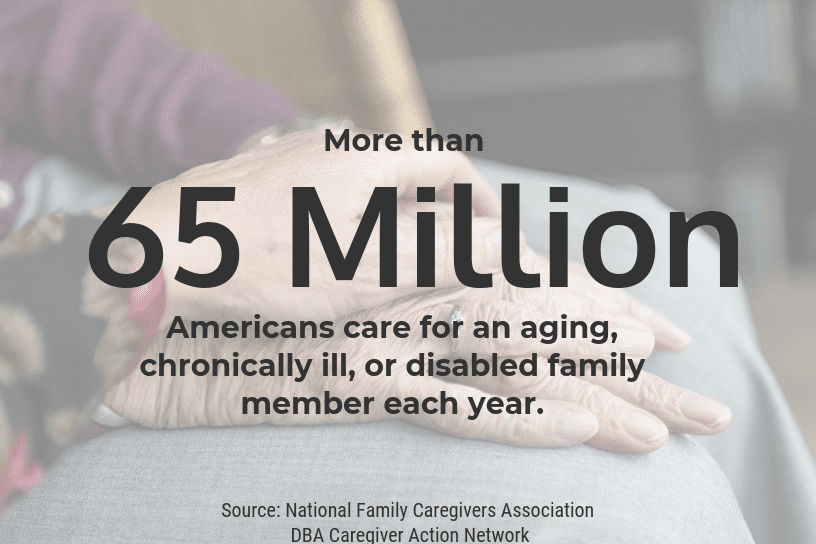5 Things You Should Consider Doing for Your Aging Parent

Editor’s Note: The following article is a retirement guest post that has been authored and contributed by John Freeman.
Watching our parents age can be difficult as they begin to need more assistance with different aspects of their lives. While your parents likely want to maintain as much of their independence as they can, and they should, you should be there to lend a helping hand when they need it.
More than 65 million Americans provide care for an aging, chronically ill, or disabled family member each year. And, since the U.S. has an aging population, with geriatrics outweighing younger demographics, more and more individuals will be taking on this role—many of whom are not adequately prepared.
If you are one of these individuals, or are simply trying to figure out how you can be useful to your parents as they age, there are certain aspects of their lives that you can help them handle to make the transition easier, starting with these 5 things.
#1: Plan Medical & General Healthcare
Unfortunately, as we age, our health typically deteriorates. While this is subtle for others, it can take a substantial toll for many whose health declines quickly. So, how can you get ahead of the situation?
First things, first. If your parent is suffering from a medical condition, or seeing a decline in their health in any capacity, you should make sure you have a firm understanding of the issues they are facing. This will help you better provide for their needs, understand what to expect as their condition develops, and ensure that they are getting proper treatment.
Based on their health outlook, you will want to help them coordinate their healthcare. That might mean simply putting plans in place for when they’ll need a higher level of medical care, scheduling their appointments, helping them process insurance documentation, financial planning for healthcare, or monitoring their treatment.
In some cases, you may even need to help administer their care. Planning ahead can help you ensure that you can be there for them, and that their healthcare needs can be integrated into your lifestyle.
#2: Sort Out Legal & Financial Issues
In the later stages of life, there is a chance that your parents may need you to step in and take on legal responsibilities on their behalf. Officially, this is known as appointing you a Power of Attorney (POA).
This will give you the power to make decisions for them if they become unable to do so. With Power of Attorney, you can make decisions regarding their finances, healthcare, and other legal matters, which can help protect their best interests.
Whether it’s because they have serious health conditions, are experiencing issues with cognitive function, or just need the peace of mind knowing that if anything happens, they have someone to attend to their legal and financial needs, obliging this request is important.
In addition to getting Power of Attorney, you should also help your parents create a will if they haven’t already. That way, they can have a say in how all their affairs will be settled when they are no longer here to have a voice for themselves.
Establishing these protocols can be complex, which is why it is typically recommended that you work with an established firm that can guide you through the process.
#3: Help Them Adapt Their Living Situation
Many people assume that once their parents reach a certain age, they need to be moved to a nursing home or retirement community. While that may be the case for some, every individual has different needs. Before making any decisions, you should consider the following:
- Are they still able to get around their home? Or, is their mobility becoming more and more restricted?
- Can the home be adapted to better suit their needs and make aging in place a possibility?
- Is moving your parents to one of these facilities financially plausible? (Because of the comprehensive services provided, nursing homes can be quite expensive.)
- Are you parents resistant to moving? Or do they feel like it’s the best option for them? (Maintaining a home can be overwhelming for older people.)
- Is their home paid off?
- Will their home be easy to sell? Or, will it require a lot of work and financial investment?
- If your parents were to move out of their home, would they move in with you or into a community where they can be cared for full-time?
This is one of the biggest decisions you will have to help your parents make as they age, so it’s important to carefully weigh your options.
#4: Provide Emotional Support
Did you know that approximately 6.5 million of the 35 million Americans over the age of 65 are affected by depression? That’s why it’s essential to provide emotional support to your parents as they age.
It is important that you facilitate family gatherings, and basically help them maintain relationships with other family members. This could include encouraging their other children and grandchildren to pick up the phone and give them a call regularly. You might also coordinate visits.
Keep in mind that your parents were there for you throughout your life’s biggest challenges and changes. They will need you to provide that same level of support for them as they tackle this new phase of life.
#5: Help Them Maintain Their Quality of Life
Part of maintaining your parents’ health that can slip through the cracks is preserving their quality of life. To help your parents continue to thrive, you should encourage them to remain active—both mentally and physically—which can help them feel their best.
As parents age, it can become difficult for them to remain social and engaged with the world around them. This can leave them feeling left out, alone, or simply bored with what their lives have become.
However, with your help and encouragement, they can take advantage of the time they have to delve into old favorite pastimes, enjoy programs provided by local organizations meant to help seniors socialize, or try things they’ve always wanted to do but didn’t have the time.
A Final Note About Sharing the Responsibility
One last note about caring for elderly parents. It can often fall on one person to shoulder the burden of caring for aging parents, whether it’s because of physical distance, the depth of relationships, or financial means.
While it might not seem like much at first (and of course you’re happy to do it), it can become a lot to manage over time. If you have siblings or other close relatives who are capable of helping out, try to disperse responsibilities.
This can not only help prevent you from getting overwhelmed and losing sight of the things in your own personal life. It can also help maintain the quality of your relationship with your parents.
It can be hard to keep sight of, but this is an important opportunity for you to help make this phase of your parents’ lives as easy and enjoyable as possible. Make the most of the time you have with them and know that they sincerely appreciate everything you do for them, even if they don’t show it.





